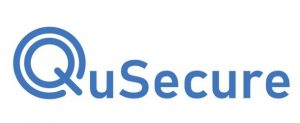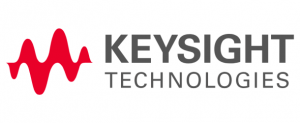Quantum News Briefs June 22: Pasqal unveils new quantum computing factory in Canada; QuSecure earns validation in Amazon Web Services Partner Network (APN); QuProtect awarded AWS Qualified Software Certification; Researchers to test limits of quantum technologies with nanoparticles in space + MORE

Quantum News Briefs June 22: Pasqal unveils new quantum computing factory in Canada; QuSecure earns validation in Amazon Web Services Partner Network (APN); QuProtect awarded AWS Qualified Software Certification; Researchers to test limits of quantum technologies with nanoparticles in space + MORE.
Pasqal unveils new quantum computing factory in Canada
PASQAL, a world leader in quantum computing based on neutral atoms, announced on June 21 the creation of a factory to produce state-of-the-art quantum processing devices at Espace Quantique 1 of DistriQ – Quantum Innovation Zone in Sherbrooke, Québec. Quantum News Briefs summarizes announcement.
In this new flagship installation, PASQAL-Canada will produce hardware for the North American market to accelerate the adoption of neutral atoms quantum computing in the region. PASQAL Canada will develop in partnership, new commercial applications in multiple areas, such as: smart cities, energy, and materials science, focusing on providing business value to end-users in the short term.
PASQAL’s quantum technology uses highly focused lasers, “optical tweezers”, to trap and manipulate neutral atoms individually to create 1D and 2D arrays in arbitrary configurations. In these quantum processors, each quantum bit (qubit) is encoded into two energy levels of an atom, each atom in these arrays represents a qubit. PASQAL neutral atoms technology has already demonstrated its capability to operate with more than 300 qubits and its next generation devices will deliver a 1,000 qubit quantum computing power, which it believes will provide significant commercial advantages over classical computers by 2024. The company’s customers include BMW, BASF, Johnson & Johnson, Siemens, Airbus, LG Electronics and Thales among many others.
PASQAL will install its quantum computer production in DistriQ’s Espace Quantique 1.
Related IQT News: Quebec facility to feature Pasqal presence; Quantum Studio helps quantum start-ups
Opening in Sherbrooke in early fall 2023, the 50,000 square foot (4,600 square meter) building will be the most extensive and comprehensive commercially focused quantum centre. It brings together the foremost minds in quantum technologies with the most comprehensively equipped shared commercial quantum development labs. DistriQ’s Espace Quantique 1 empowers companies like PASQAL to accelerate the development of technologies and applications by focusing their resources on research and development rather than costly infrastructure and technologies. Click here to read announcement in-entirety.
QuSecure earns validation in Amazon Web Services Partner Network (APN); QuProtect awarded AWS Qualified Software Certification
 QuSecure™, Inc., announced on June 21 that its QuProtect PQC solution has been recognized as Qualified Software by Amazon Web Services (AWS). Certification was achieved upon successful completion of the Foundational Technical Review (FTR). Passing the FTR recognizes QuSecure as a validated partner on the Software Path in the AWS Partner Network, fast-tracking QuProtect toward a co-selling program.
QuSecure™, Inc., announced on June 21 that its QuProtect PQC solution has been recognized as Qualified Software by Amazon Web Services (AWS). Certification was achieved upon successful completion of the Foundational Technical Review (FTR). Passing the FTR recognizes QuSecure as a validated partner on the Software Path in the AWS Partner Network, fast-tracking QuProtect toward a co-selling program.
QuSecure also achieved AWS Public Sector Partner Program designation, which recognizes AWS Partners with cloud-based solutions and expertise in the areas of government, space, education, and non-profit organizations. With this designation, QuSecure can now leverage the AWS brand and ecosystem to bolster its distribution efforts.
QuSecure’s validation as a member of the AWS Partner Network (APN) demonstrates its technical proficiency and success in delivering projects to end customers. Visit the QuSecure profile on the Engage with AWS Partners portal to learn more.
The awarding of the AWS Qualified Software Certification for QuSecure occurred in record time. While most software vendors take 1-2 years to earn certification, it took QuSecure less than 60 days. This is a testament to both the high quality of the QuProtect solution as well as the shape=”rect”>urgency and importance the Federal Government and AWS realize in moving toward a quantum-resilient and more secure future. Additionally, this puts QuSecure on a rapid path toward achieving listing, the next step for partner program and partner network members.
The AWS Partner Network (APN) is a global community of partners offering programs, expertise, and resources to create, promote, and sell offerings to customers. The APN enables partners like QuSecure and AWS to deliver innovative solutions, solve technical challenges, realize business, and deliver value to our mutual customers. Click here to read entire announcement.
Researchers to test limits of quantum technologies with nanoparticles in space
 The University of Warwick in England and the Universities of Swansea and Strathclyde have received over $319,000 from the UK Space Agency to expand research into space technologies utilizing quantum physics and nanoparticles — two features with the potential to drastically reduce the size of satellites while lowering development and launch costs. Quantum News Briefs summarizes June 21 article in CourthouseNews.
The University of Warwick in England and the Universities of Swansea and Strathclyde have received over $319,000 from the UK Space Agency to expand research into space technologies utilizing quantum physics and nanoparticles — two features with the potential to drastically reduce the size of satellites while lowering development and launch costs. Quantum News Briefs summarizes June 21 article in CourthouseNews.
James Bateman of the University of Swansea physics department, in a statement. “Our team is comprised of experts in nanosatellites, quantum sensing and experimental optomechanics, and this project will help to make levitated optomechanical sensors a reality.”
Though seemingly complicated, nanoparticles are simply particles that are a thousand times larger than an atom and a thousand times smaller than a grain of sand. What is more complex, however, is how previous research involving levitated optomechanics — a field that deals with the motion of tiny particles held and measured in free space by laser light — has indicated that nanoparticles can exhibit behaviors governed by the laws of quantum mechanics, a theory that describes how atoms and subatomic particles interact.
For the first time, scientists will now attempt to apply nanoparticle research to modern technologies through “Levitated Optomechanical Technologies in Space” or “LOTIS,” an 18-month project with an ambitious goal of utilizing nanoparticles as sensors for space-born devices. Such devices would be small, lightweight and capable of fitting shoebox-sized nanosatellites known as CubeSats, offering scientists a variety of exploratory applications, whether it be for spaceflight or geophysics. Click here to read article in-entirety.
Keysight Technologies, Inc. has introduced the first PCI Express (PCIe) 6.0 protocol validation tools. The cable-free Protocol Analyzer and Protocol Exerciser enable semiconductor, computer, and peripheral makers to perform complete silicon chip, root complex, and endpoint system verification in a real-time development environment.
With the standard enabling new designs for servers, endpoint devices, switches, storage devices, and compute engines at speeds up to 64 gigatransfers per second (GT/s), equipment and device companies need protocol test solutions to validate PCIe 6.0 technology designs and ensure interoperability with other PCIe 6.0 specification compliant designs.
Keysight meets the need of design engineers with the first PCIe 6.0 Protocol Analyzer and PCIe 6.0 Protocol Exerciser. These cable-free solutions provide testing versatility and enable faster, more confident testing of PCIe 6.0 technology designs.
The new Keysight protocol PCIe 6.0 architecture solutions offer:
–Analysis of the data link / transaction layer of PCIe 6.0 technology designs.
Support for all PCIe technology speeds – 2.5 GT/s, 5.0 GT/s, 8 GT/s, 16 GT/s, 32GT/s, and 64GT/s (PAM4) – and lane widths from x1 to x16.
–Emulation of root complex and endpoint devices when validating PCIe and Compute Express Link (CXL) technology designs.
–Debugging support with PCIe 6.0 technology and CXL 1.1 / 2.0 protocol visualization and analysis tools.
–Cable-free protocol analysis in a streamlined Card Electromechanical CEM form factor.
–Complete PCIe 6.0 standard test solution for the entire design cycle.
Click here to read original announcement in-entirety.
Sandra K. Helsel, Ph.D. has been researching and reporting on frontier technologies since 1990. She has her Ph.D. from the University of Arizona.





















